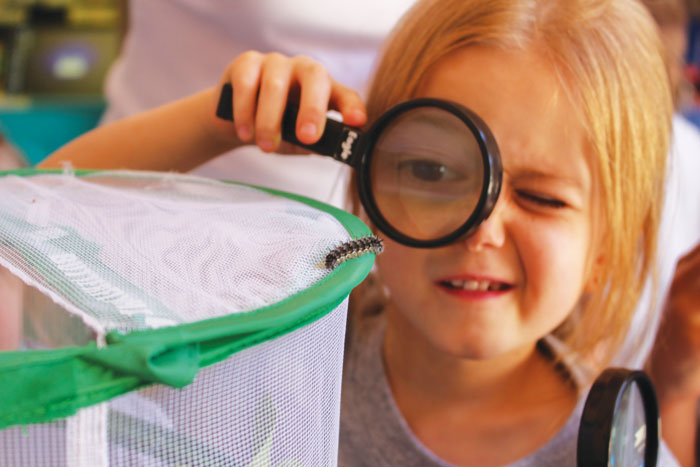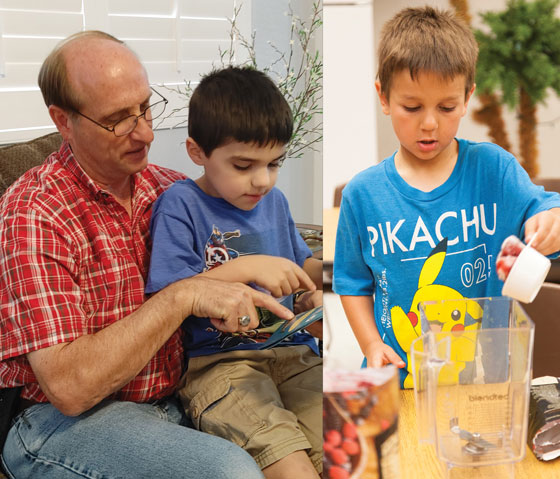Parents, grandparents, and caregivers play a special role in helping young learners develop literacy skills. There are a variety of ways families can engage young children in the home, helping them become lifelong learners.
According to Trisha Pemberton, early learning specialist at Mesa Public Schools, research shows play is an important key to early literacy. Children need to play because it activates all parts of the brain, helping them build executive function skills, and triggers curiosity or inquiry skills. Play helps children develop social, language, and communication skills. It also builds confidence and makes children feel loved. By simply talking, reading, or singing together, caretakers can support their child’s early learning.
“Children are successful when they are engaged in doing what their brains are designed to do, which is playing,” Trisha says. “During play, children develop language skills and vocabulary. It’s also when social norms and rules can be more easily taught because they make sense to children.”
Looking for ways to support young learners? Here are a few tips from Trisha:
• Sing and dance together. Singing can introduce young children to new vocabulary words in a fun way.• Play with your young learner, whether it’s drawing, make-believe, or another fun activity. These interactions help children develop and understand language.
• Celebrate your family history. Create beautiful interactions in the kitchen, cooking special foods, and sharing a story about a cultural family tradition.
• Share a favorite memory and ask the child to share one of their favorite memories. Are there familial things that happen when a grandmother or uncle visits? How does the family engage? It’s in these pieces that children develop a robust vocabulary.
• Read a favorite book together. Ask your child to select the book and have them share why it is special. Provide opportunities for young children to voice their preferences.
• Share a time as a child when it may have been challenging to learn something. Empower your children by encouraging them to ask questions. Maybe they want to know why grandpa has big ears. They aren’t being disrespectful, it’s their way of using their inquiry skills.
For more information about early learning, please visit mpsaz.org/earlylearning.



